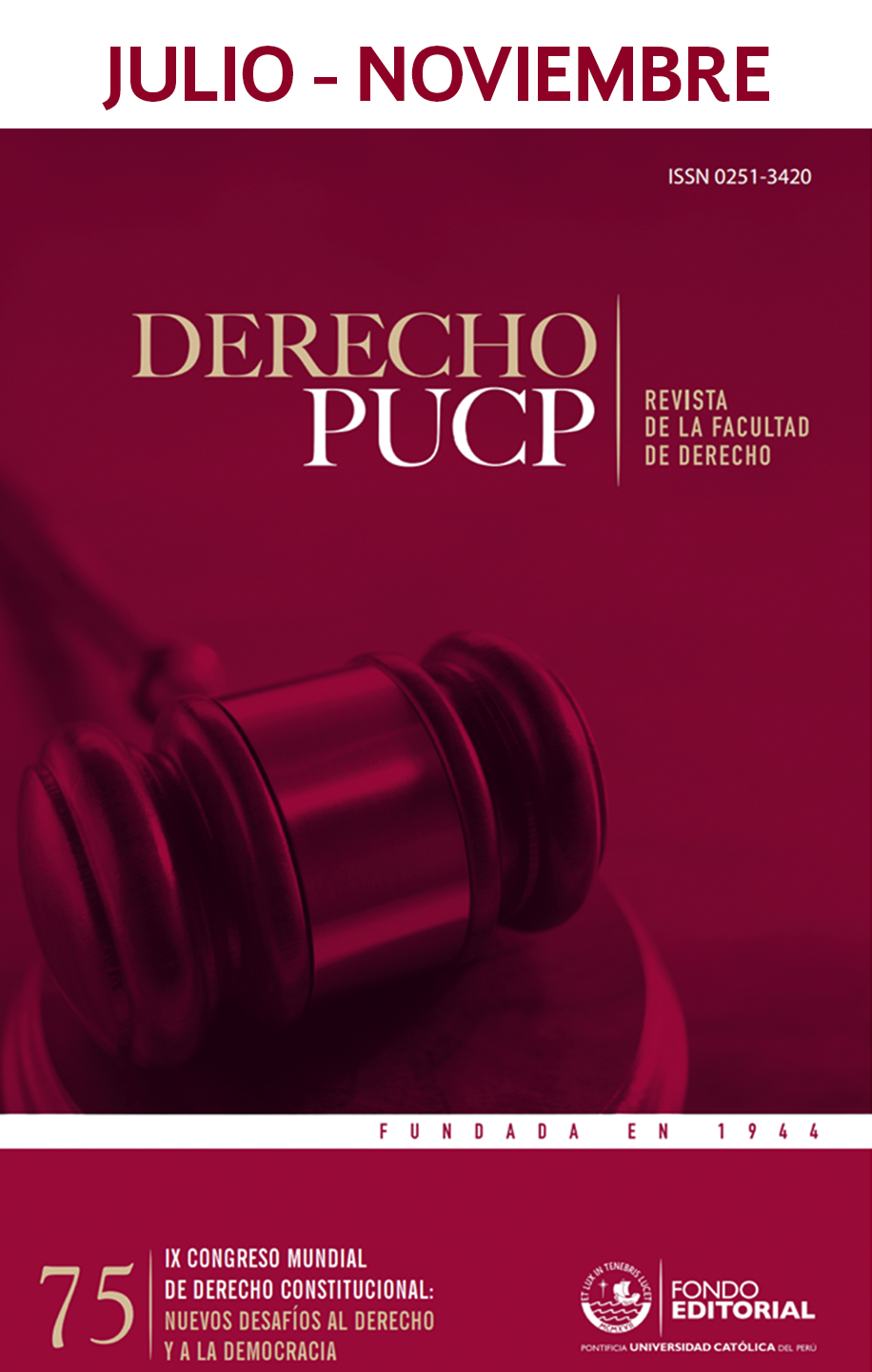Las democracias con libertades disminuidas en Latinoamérica en el siglo XXI y la Carta Democrática Interamericana: ¿Dos modelos de democracia en la región?
DOI:
https://doi.org/10.18800/derechopucp.201502.003Palabras clave:
Democracia en América Latina, OEA, UNASUR, autoritarismo competitivo, Carta Democrática Interamericana, pesos y contrapesos, Accountability horizontal, democracias con libertades disminuidasResumen
La Carta Democrática Interamericana (CDI) fue adoptada en el año 2001 por los Estados miembros de la Organización de Estados Americanos (OEA) como un instrumento renovado para la defensa de la democracia, no sólo contra el golpe de Estado tradicional, sino también para hacer frente a las graves violaciones de la responsabilidad horizontal. El segundo supuesto consideró, como precedente, la situación política en el Perú durante el gobierno de Alberto Fujimori (1995-2000), el cual fue definido por los académicos de Ciencias Políticas y Derecho Constitucional como un régimen autoritario competitivo. Sin embargo, durante la última década hasta la actualidad hemos hallado en América Latina varios países con gobiernos en donde el principio de equilibrio de poderes ha erosionado como resultado de las medidas adoptadas por sus respectivas ramas ejecutivas. Esta situación sugiere las siguientes preocupaciones: ¿El modelo democrático liberal de la CDI se encuentra en crisis? ¿Este modelo ha sido vencido por los gobiernos liberales lo cuales privilegian a los derechos económicos y sociales y restringen los derechos civiles y políticos? ¿O ambos modelos están condenados a coexistir en la región?
Descargas
Descargas
Publicado
Cómo citar
Número
Sección
Licencia
Derechos de autor 2016 Derecho PUCP

Esta obra está bajo una licencia internacional Creative Commons Atribución 4.0.




